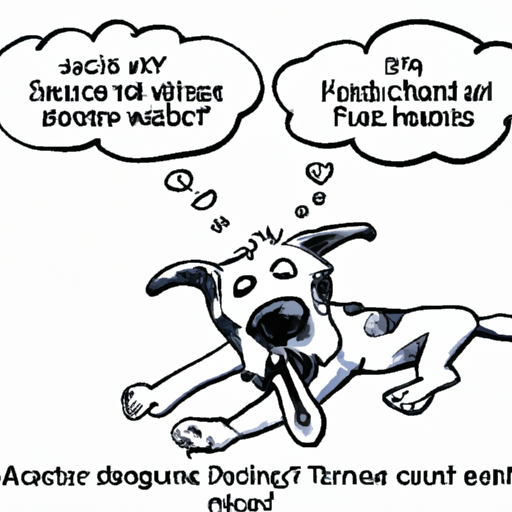Dogs are fascinating creatures, aren’t they? They’re full of surprises and often leave us wondering why they do the things they do. One such peculiar behavior you might have noticed is your dog sneezing when it’s upside down. What is this all about? Is it normal? Should you be concerned? Let’s dig in.
1. Understanding a Dog’s Respiratory System
Firstly, let’s understand the basics of a dog’s respiratory system. Dogs, like humans, have a complex respiratory system that includes the nose, throat, windpipe, and lungs. When your dog flips upside down, the gravitational pull can cause a shift in these organs, leading to a sneeze.
- Nose: Dogs’ noses are highly sensitive and are their primary source of information gathering. Any change in environment can trigger a sneeze.
- Throat: The throat houses the voice box and leads to both the windpipe and the esophagus. In an upside-down position, mucus can accumulate, causing a sneeze.
- Windpipe: The windpipe carries air to and from the lungs. When a dog is upside down, this pathway can be constricted, possibly leading to a sneeze.
- Lungs: The lungs are responsible for oxygenating blood. Any discomfort or change in normal operation can cause a dog to sneeze.
2. Why does Being Upside Down Trigger a Sneeze?
When a dog is upside down, the natural flow of mucus in the nasal passages can be disrupted, causing a buildup that triggers a sneeze to clear the nasal airways. It’s a natural reflex, much like how you might cough if something irritates your throat.
- Gravity: The change in position affects the natural flow of fluids in the dog’s body, including the mucus in the nasal passages.
- Irritation: Being upside down may cause dust or other particles to irritate the nasal passages, triggering a sneeze.
- Clearing the airways: The sneeze is essentially a mechanism to clear any obstructions in the respiratory tract.
3. Is it Normal for Dogs to Sneeze When Upside Down?
Yes, it’s perfectly normal. Sneezing when upside down is just one of the many quirks dogs have. It’s part of their body’s natural defense mechanism to clear the nasal passages. However, if it becomes excessive or is accompanied by other symptoms like nasal discharge or difficulty breathing, it’s a good idea to consult a vet.
| Normal Sneezing | Potential Concerns |
|---|---|
| Occasional sneezing | Frequent sneezing |
| No other symptoms | Nasal discharge |
| Difficulty breathing | |
| Loss of Appetite |
4. When to Consult a Vet
While occasional sneezing when upside down is normal, it’s important to keep an eye out for any unusual behaviors or symptoms that may indicate a more serious problem.
- Frequent sneezing: If your dog sneezes frequently, not just when upside down, it could indicate an allergy, infection, or foreign object in the nose.
- Nasal discharge: Clear discharge is normal, but if it’s colored or accompanied by sneezing, it could signal an infection.
- Difficulty breathing: If your dog seems to struggle to breathe or makes noises when breathing, it’s time to consult a vet.
- Loss of Appetite: If your dog stops eating or loses interest in food, it could be a sign of an underlying health issue.
5. Frequently Asked Questions
Here are some commonly asked questions about why dogs sneeze when they’re upside down.
1. Why does my dog sneeze when playing?
Sneezing during play is common in dogs. It’s a form of communication, signaling that the play is just play and not aggression.
2. Is frequent sneezing a sign of allergies in dogs?
Yes, frequent sneezing can be a sign of allergies. If your dog’s sneezing is accompanied by other symptoms like itching or eye discharge, it’s best to consult a vet.
3. Can a dog get hurt from sneezing?
In general, no, a dog can’t get hurt from sneezing. However, if there’s an underlying health issue causing the sneezing, it should be addressed by a vet.
4. Should I stop my dog from rolling upside down to prevent sneezing?
Not necessarily. If your dog enjoys being upside down and only sneezes occasionally, there’s no need to stop this behavior.
5. When should I worry about my dog’s sneezing?
If your dog’s sneezing is frequent, excessive, or accompanied by other symptoms like nasal discharge, difficulty breathing, or loss of appetite, you should consult a vet.



